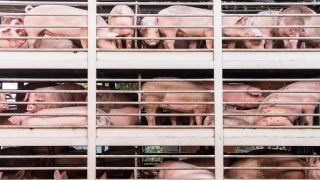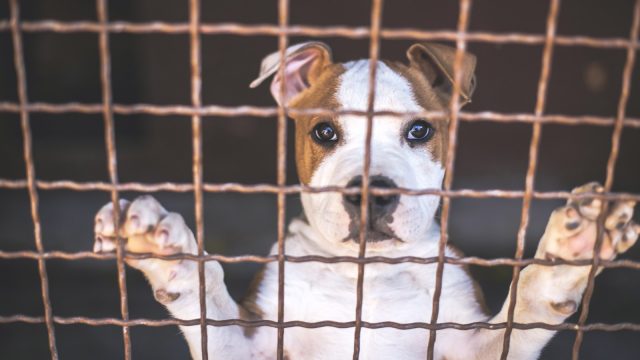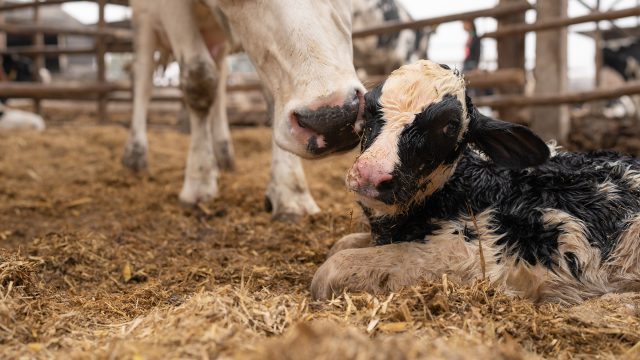
The USDA is Standing By While a Global Crisis Looms
A global health crisis fueled by the greed of factory farming conglomerates and their allies in Congress is looming. It’s not climate change or heart disease, but the public health nightmare of antibiotic-resistant superbugs. The development of antibiotics only began in earnest about 100 years ago, and since then they have revolutionized medicine. Most people alive today have no concept of what life would look like without access to lifesaving antibiotics, but widespread misuse and overuse of these lifesaving tools could have deadly consequences.
“A post-antibiotic era means, in effect, an end to modern medicine as we know it,” says Dr. Margaret Chan, director-general of the World Health Organization. “Things as common as strep throat or a child’s scratched knee could once again kill.” The Centers for Disease Control state that each year at least 2 million people become infected with antibiotic resistant bacteria, and 23,000 people die as a direct result of these infections. With major health organizations in agreement that antibiotic resistance is a dire health threat, one would think that the meat industry, the largest abuser of these lifesaving drugs, would clean up its act. Sadly, this is not the case.
For years, the Animal Legal Defense Fund has been sounding the alarm bells about the danger of feeding thousands of pounds of antibiotics to healthy farm animals, to keep them growing faster and larger and to prevent them from succumbing to disease amid their filthy, overcrowded living conditions. Antibiotics have long been a crutch used by the meat industry to maintain their inhumane, industrialized operations that churn out meat with maximum efficiency and profit. The overuse of these drugs, many of which are important—even critical—in human medicine, has contributed to the spread of pathogens that are resistant even to next-generation, cutting-edge antibiotics. Colistin, a drug of last resort, has become one of the only effective antibiotics to treat highly drug-resistant bacteria when all else has failed. The recent emergence of a colistin-resistant bacteria in the United States, then, first in a human patient and later in a specimen of pig intestine, raises the specter of a truly invincible super bacteria.
At the same time, consumer demand for meat from animals raised without antibiotics has skyrocketed, as consumers seek to avoid drug-resistant bacteria and choose healthier options. However, misleading labeling of meat and poultry both deceives consumers and prevents the market from changing to meet consumer demand.
In response to this public health crisis, on June 3, 2013—over three years ago—the Animal Legal Defense Fund submitted a petition to the U.S. Department of Agriculture’s Food Safety and Inspection Service, asking the agency to require that meat and poultry from animals fed antibiotics be labeled as such, and to provide a uniform labeling standard for antibiotic use in meat, to meet consumer demand and address the antibiotic resistance crisis. The Animal Legal Defense Fund followed up the petition with a letter providing additional evidence of the need for mandatory antibiotics labeling, including Congressional support, studies, surveys and policymaking recommendations.
In response, the agency did absolutely nothing. Now, the Animal Legal Defense Fund has gathered another three years of additional evidence of the antibiotic resistance crisis, rising consumer demand for meat raised without antibiotics and the confusion that inconsistent and unregulated antibiotics labeling has sowed. And today, the organization submitted another follow-up letter, accompanied by 31 pieces of evidence, illustrating the dire need for mandatory meat and poultry antibiotics labeling.
Since the original letter, evidence has mounted in support of antibiotic labeling. Three federal acts have been introduced to combat antibiotic resistance and the excessive use of antibiotics in agriculture, and new studies have emerged documenting the transference of drug-resistant bacteria between farm animals and human hosts. The Animal Legal Defense Fund’s first letter has garnered support from a coalition of public health and environmental organizations, including The Sierra Club, Johns Hopkins Center for a Livable Future, the Socially Responsible Agricultural Project and Friends of Family Farmers.
The USDA’s continued inaction in the face of an enormous public health crisis and rampant consumer confusion shows that it’s abdicating its statutory responsibility to protect consumers and safeguard human health. The Animal Legal Defense Fund will continue urging the agency to do its duty.
Focus Area
Related
-
Complaint Urges USDA to Investigate Puppy Mill Carrier for Deaths During Transport
Records obtained by the Animal Legal Defense Fund reveal puppy deaths and injuries in transport.June 11, 2024 Press Release -
Legal Petition Urges USDA to Adopt Comprehensive Regulatory Framework for Wildlife Services Program
The Animal Legal Defense Fund, as part of a coalition, submitted a petition for rulemaking to the USDA Animal and Plant Health Inspection Service urging Wildlife Services to phase out lethal control of wild animals, including prohibiting specific practices such as neck snares, M-44 cyanide bombs, lead bullets, and more.November 21, 2023 Press Release -
USDA Restricting Access to Plant-Based Milks in National School Lunch Program is Dietary Racism
Proposed rule would maintain an unnecessarily complicated and confusing process for children to get access to plant-based milkMay 11, 2023 Press Release



